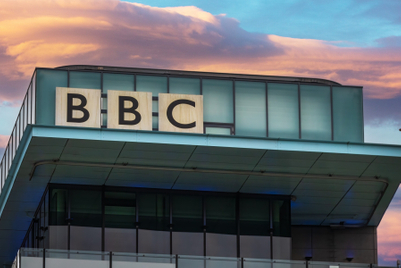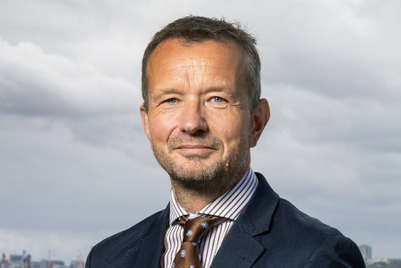
BBC Global News is far from alone in having had a rough few months. As COVID-19 hit, its 400 employees globally across some 15 offices were thrown into the turmoil of completely retooling news production operations under a rolling program of office closures, only to have advertising revenue freeze up as audiences peaked. However, the leader of the media service, CEO Jim Egan, remains stoic about the ordeal and the pandemic’s impact. When asked about it, he conjures up former Chinese Premier Zhou Enlai’s famous retort during the 1970s to a question about the impact of the French Revolution: “It’s far too early to tell”.
The good news for Egan is that BBC Global News audiences are way up and the demand for news has risen dramatically. The BBC World News channel has added more than 50 million households to its distribution over the last couple of months, Egan points out, with BBC News consumption online rising 80% globally year-on-year and by 100% in Asia-Pacific. “But we were definitely not seeing a corresponding increase in revenues,” he adds. That’s the bad news.
In fact, quite to the contrary, in the second half of March and early April “it just felt like the marketing and advertising industry was in shock, to be honest,” Egan says, explaining how a massive increase in inventory created offsetting impacts on yields and CPMs in many sectors.
“I think that shock decreased the demand in the market,” says Alistair McEwan, BBC Global News’ senior commercial development VP for Asia and ANZ. “Advertisers just pulled back. And we have very good evidence from a number of our key advertising agency partners around the world, in particular in this region, that spends have decreased significantly over the last six to eight weeks, as advertisers have put the brakes on to say: ‘Give us time, we need to think about how we're going to approach this situation’. So actually, the demand, the size of the advertising pie, has decreased quite remarkably.”
Blocklisting and fake news
“Some of it has been associated with—certainly in the more extreme phase of the crisis—real nervousness on the part of advertisers and agencies, about wanting to appear around Coronavirus news stories,” Egan admits. As COVID-19’s grim death tolls began rising, many brands did not want to risk insensitive associations by placing logos near news of a growing health tragedy.
The spread of fake news stories across social media, such as baseless 5G network warnings and potentially harmful hoax remedies, only amplified the problem for news publishers. As a public service, at least in the UK, BBC News had obligations to fact check and debunk many of these, which extended to global investigations around so-called miracle cure drinks in places like Madagascar and Kenya. Some of this was tackled through an broader industry body called the Trusted News Initiative, including other news publishers along with Facebook and Google.
“But in the end there is a limit on what we as news organisations can do,” Egan says. “We can't fact check the internet. We can't simply be there trying to quash every single rumor that pops up everywhere.”
BBC News may have been trying to cover the pandemic’s spread responsibly, but that didn’t prevent brands from tarring coronavirus news content with the same thick brush.
“I think for a lot of advertisers, the pre-existing strategies that they were employing, suddenly came into very sharp focus as to how they can employ the tools that they were using to accelerate brand safety mechanisms, i.e. apply things like negative keyword targeting tactics, to all of news in order to apply a very swift, sharp brand safety measure, put that in place,” McEwan says. This meant even trusted news publishers initially found themselves on advertising blocklists.
Putting ad inventory to good use
But BBC News’ had a novel commercial response to COVID-19. With the ad industry still in shock, Egan and his team decided to turn a negative to a positive by putting their ad space to good use. After conferring with the WHO and World Bank, Egan called up his competitive counterparts at CNN and Euronews to offer up to 20% off their ad inventory for coronavirus-related public service messages, at a combined value of up to $50 million.
“You can't just sort of sit around and do nothing. You need to have a sense of agency, being able to do something when you're in the teeth of a crisis like that,” Egan says. “It seemed to me that we needed to do something that a) gave it gave us a bit of kind of focus for our energies; and b) was going to make a bit of a conscious contribution to what was going on.”
While not all space in every market may have been taken up, Egan says the WHO, UN, Centers for Disease Control and a number of national health and foreign ministries responded very positively in markets like the US, UK and Korea. With discussions still ongoing, he expects more Asia-Pacific inventory will yet be used.
Putting it all in context
Alongside putting ad space to good use, BBC News also set to work doing research and explaining to advertisers why they felt BBC had a suitable and brand-safe environment. Part of that involved better describing explanatory content with headlines like ‘Coronavirus explained’ and ‘Coronavirus: What you need to know’. But it also meant pointing out that three-quarters of the surge in audience came from non-COVID content, such as technology and travel, as people indulged their curiosities while stuck at home.
BBC also did an audience survey that found that more than two-thirds of its audience understood and accepted the value of advertising during the pandemic, but felt the right tonality and messaging was important for brands when discussing it.
This in turn became a silver lining for media publishers, in that COVID allowed them to engage brands more readily in discussions of contextual advertising.
“It’s not the right response for advertisers to simply say when we're not going to advertise on sites like the BBC," Egan says. "We have a range of technical tools with Grapeshot and other things that allows very, very close targeting. So, of course, I'm going to make an argument for the BBC being a good place to advertise, even during the Coronavirus crisis and perhaps particularly during the Coronavirus crisis.”
The good news, McEwan says, is he’s seen a marked shift in receptiveness from brands over the past month, as they’ve had time to consider measures put in place, tactics, tools and strategies with agency partners and publishers. As Asia-Pacific markets are once again opening up, some Chinese and Korean clients now want to return to business. And reaching clients across APAC is becoming easier as well, as they’re now more willing to engage through videoconferencing than before, McEwan points out.
“There is a much greater level of understanding now, and of our ability to be able to present that information to advertisers to give them the degree of comfort and knowledge around how to navigate it. So I think actually the subject has moved on quite significantly in the last month.”
Also helping to drive some of the discussions around contextual advertising: the gradual demise of third-party cookies, McEwan says. That will only pick up pace as Google phases them out by year’s end.
“I think the industry over the last few years has disproportionately veered towards audience-based targeting, targeting data points ostensibly to the significant detriment of the importance of context, says McEwan. “Part of our value proposition is that who you advertise with, where you advertise and the messaging which you're delivering around that content is equally as important as to who you advertise to, and the tactics therein.”
For advertisers in a content environment where COVID-19 casts a long shadow, this has rarely been more true.
As Egan succinctly quips, “Brands recognize that although content may be king, context is definitely a senior member of the royal family.”


.jpg&h=334&w=500&q=100&v=20250320&c=1)


.jpg&h=334&w=500&q=100&v=20250320&c=1)
.jpg&h=334&w=500&q=100&v=20250320&c=1)
.jpeg&h=334&w=500&q=100&v=20250320&c=1)


.jpg&h=334&w=500&q=100&v=20250320&c=1)



.jpg&h=268&w=401&q=100&v=20250320&c=1)

.jpg&h=268&w=401&q=100&v=20250320&c=1)

.jpg&h=268&w=401&q=100&v=20250320&c=1)
.jpg&h=268&w=401&q=100&v=20250320&c=1)